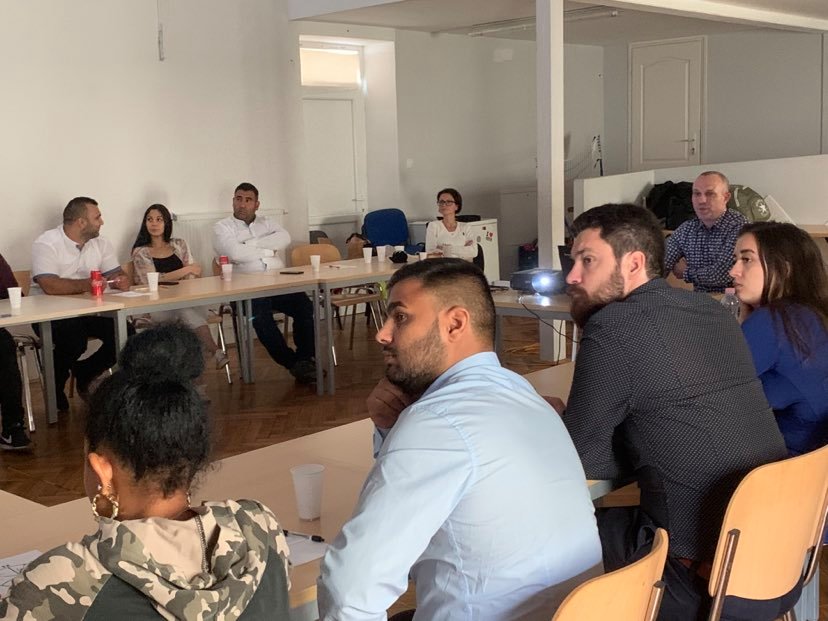This conference was organized in Pécs, Hungary on September 18, and brought together young Roma and non-Roma people from Hungary to discuss possible tools to challenge antigyspyism and to think about possible strategies in the field of advocacy.
Participants were university students and youth workers, but there were some others who are working in the local municipalities or as social workers. After an interactive round of introductions, Phiren Amenca presented the first findings from the research, entitled “Roma Youth Participation in Europe: Challenges, Needs and Opportunities”. After discussing the research itself and the main barriers for Roma youth participation, Attila Hidvégi Balogh, journalist and the editor of the RomNet webpage, which is the only news portal nowadays sharing every relevant information about Roma issues in Hungary, had a presentation and discussion. The topic of his presentation was about the media representation of Roma including some historical backgrounds and the effects of Roma representation in the media nowadays on our advocacy.
As part of the second half of the meeting, participants could have an open discussion with Szilvia Lakatos and Norbert Hegedűs. Szilvia is a senior lecturer in the University of Pécs, leader of the Kethanipe Association and she is active in the political life of Baranya county as a representative of the National Roma Self-Government. She shared her knowledge and experiences about the system of the self-governments and its decision-making processes, furthermore she encouraged the young Roma and non-Roma participants to enter the political sphere. She did not hide the failures of political life, mentioning how hard it is to get attention in politics as being young, especially if you are a young Roma woman.
Norbert Hegedűs shared his experiences as a young Roma man, active in local politics in Komló. During the discussion it turned out that the young Roma and non-Roma participants find it important to have space and time to talk openly about Roma issues, however they do not have the chance to brainstorm together about politics and public issues regarding Roma. They shared their wish to learn from professionals and from each other, since they think that being well-informed is the basis of the credible political and public life representation of Roma. This activity could take place in person as the situation that time in Hungary did allow us to bring together this group.

The conference was supported by the US Embassy Budapest.


